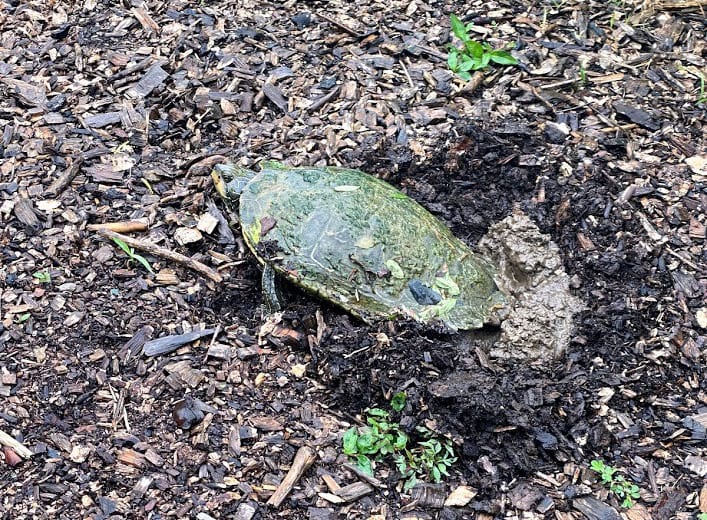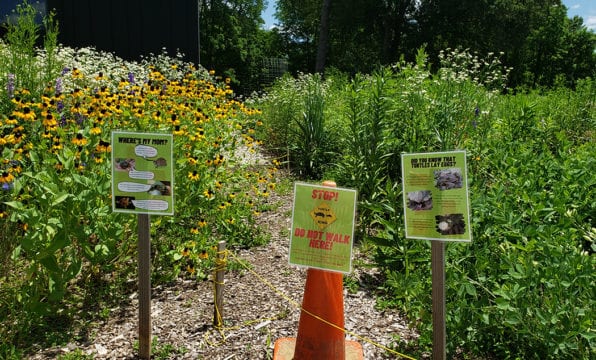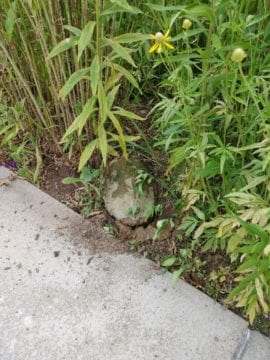
Turtles Nesting at The Parklands
Beckley Creek Park
It was a rainy, spring morning when the education staff discovered a turtle in the pollinator garden by the PNC Achievement Center in Beckley Creek Park. She was already hard at work, her hind legs digging a hole in the wet mud. We were thrilled to see she had chosen this spot to lay a clutch of eggs. What really took us by surprise is that a couple weeks later another turtle had chosen a spot a couple feet from hers to lay her eggs as well. We had witnessed not one but two turtles laying their eggs in the pollinator garden!
This time of year, many female semi-aquatic turtles are making the journey out of the water to nesting sites to lay their eggs. It is important to look out for turtles on the road, as female turtles often have to cross streets in order to reach nesting sites. If you see a turtle trying to cross a road, please consider helping it out if it is safe to do so. Always put the turtle on the side of the road it was headed towards, even if that is away from the water. Never try to take a turtle away from its habitat. Turtles know where they are going and if you take them away, they will most likely risk their life to go back to where they were headed in the first place.
Turtles are reptiles, and like most reptiles, they lay soft, leathery eggs. The eggs will hatch in about 75 days. Interestingly, what determines if the baby turtles will be male or female is the temperature outside. Warmer temperatures will produce females and cooler temperatures will produce males. After the turtle is done laying the eggs, they will not protect them like some species. However, sometimes mother turtles will lay fake nests to throw off predators. Some female turtles can lay 2-3 egg clutches in a year.
If you happen to come upon a female turtle laying her eggs, please do not disturb her or get too close as this may stress her out. At the PNC Achievement Center, we marked off the area where the nests were laid to prevent anyone from accidently damaging them. If you happen to see the area, please do not bother it. Hopefully, we will have some hatchlings very soon!


